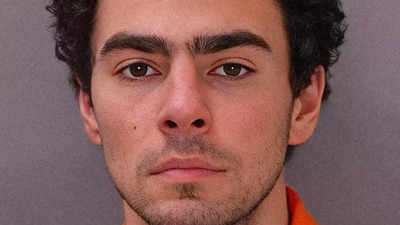
The man accused of fatally shooting UnitedHealthcare CEO Brian Thompson on a Manhattan sidewalk last week faces a second-degree murder charge, though legal experts suggest that new evidence could lead to more severe charges in the coming weeks.
Luigi Mangione, 26, was arrested on December 10 in Pennsylvania following a nationwide manhunt. Surveillance footage from the fatal shooting, which took place on December 4, showed a dark-hooded figure with a gray backpack shooting Thompson in the back from several feet away. Despite the clear nature of the crime, under New York law, a first-degree murder charge is not automatic unless aggravating factors—such as terrorism or a murder-for-hire—are involved.
A potential terrorism link?
While second-degree murder carries a sentence of 15 years to life, CNN reported legal experts suggesting that if further evidence points to a terrorism motive or if authorities uncover evidence of premeditation, the charge could be upgraded to first-degree murder, which carries stiffer penalties.
David Shapiro, a criminal justice expert at John Jay College, reportedly explained that if authorities find indications that Mangione’s actions were motivated by a desire to intimidate the public or influence a government entity, they may opt for a first-degree murder charge. Mangione’s apparent anger toward the health insurance industry, described in a “claim of responsibility” letter found on his person, raises questions about whether the murder was a targeted act of political or social protest, potentially escalating the charge to first-degree murder.
The letter, obtained by the New York Police Department (NYPD), suggests Mangione viewed the killing as a symbolic act against “corporate greed,” and that he felt the need to confront the alleged corruption in the insurance industry. The shooting of Thompson, a husband and father of two, has sparked outrage, drawing attention to the broader public anger toward the health care sector.
Investigation and federal involvement
Federal authorities may also become involved, particularly given Mangione’s interstate travel. He traveled to New York from Pennsylvania by Greyhound bus, and federal prosecutors could file additional charges related to his interstate travel or further investigation into possible violent acts.
The gun used in the shooting—a ghost gun—was found in Mangione’s possession upon his arrest, further linking him to the crime. The weapon matches shell casings found at the crime scene, and Mangione’s fingerprints were found on items he purchased before the murder, solidifying the connection.
Mangione’s legal defense and extradition
Mangione’s attorney, Thomas Dickey, has stated that he plans to plead not guilty to the charges and is questioning whether authorities have the correct person. Mangione is currently fighting extradition to New York, where he will face charges related to the murder and the illegal firearm. His lawyer suggests that he will continue to contest the move, though many legal experts believe Mangione will eventually waive his right to fight extradition.
As the legal proceedings continue, prosecutors are preparing to present forensic evidence and build a timeline of Mangione’s movements leading up to and after the murder, which may include DNA analysis and further video footage. The outcome of the extradition hearing and the evidence presented will be critical in determining whether Mangione faces a life sentence or an upgraded charge with even more severe penalties.
In the coming weeks, authorities will continue to investigate Mangione’s motive, potential links to other acts of violence, and the broader implications of his actions, including whether this could signal further threats to high-profile executives in the healthcare industry.






